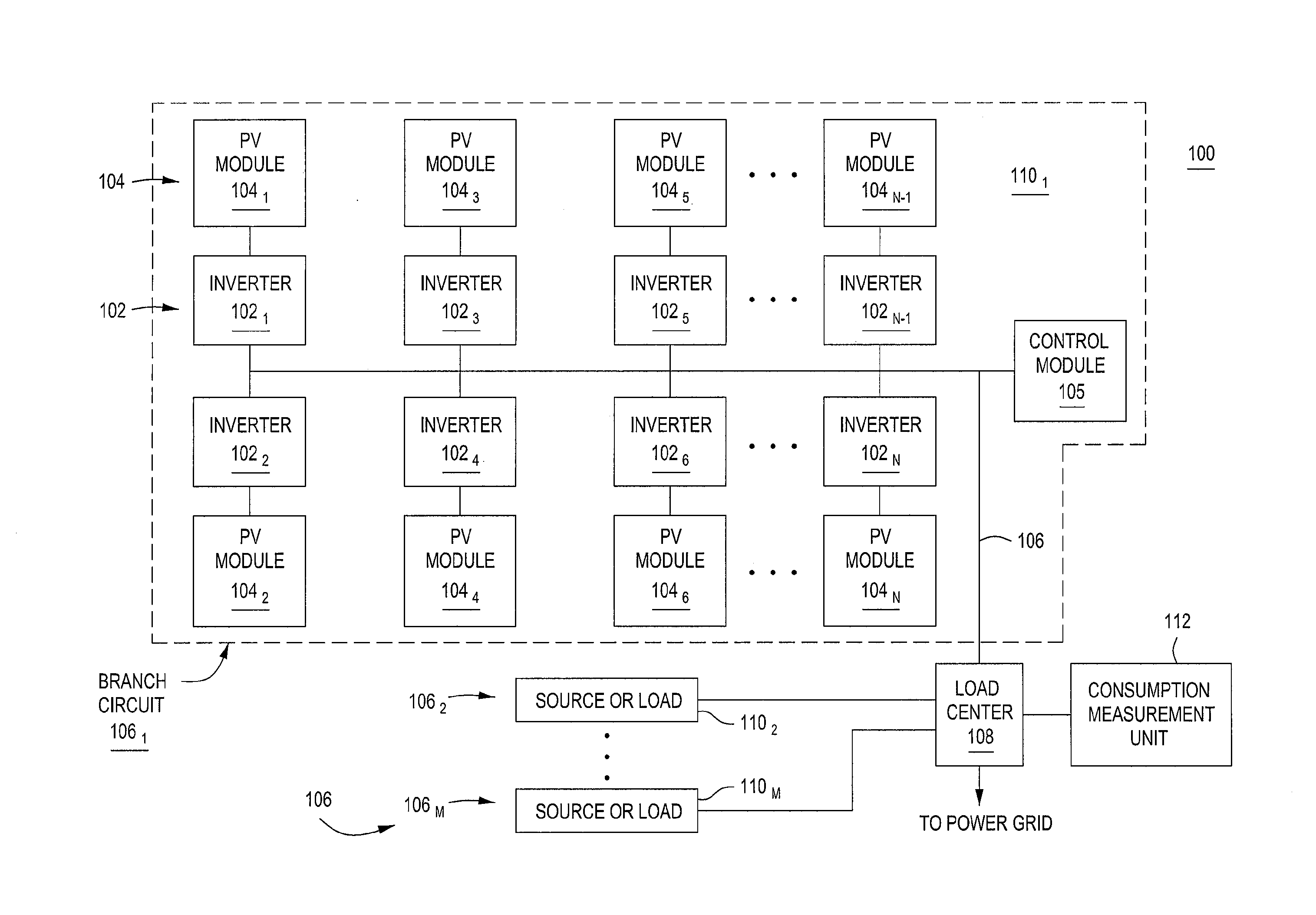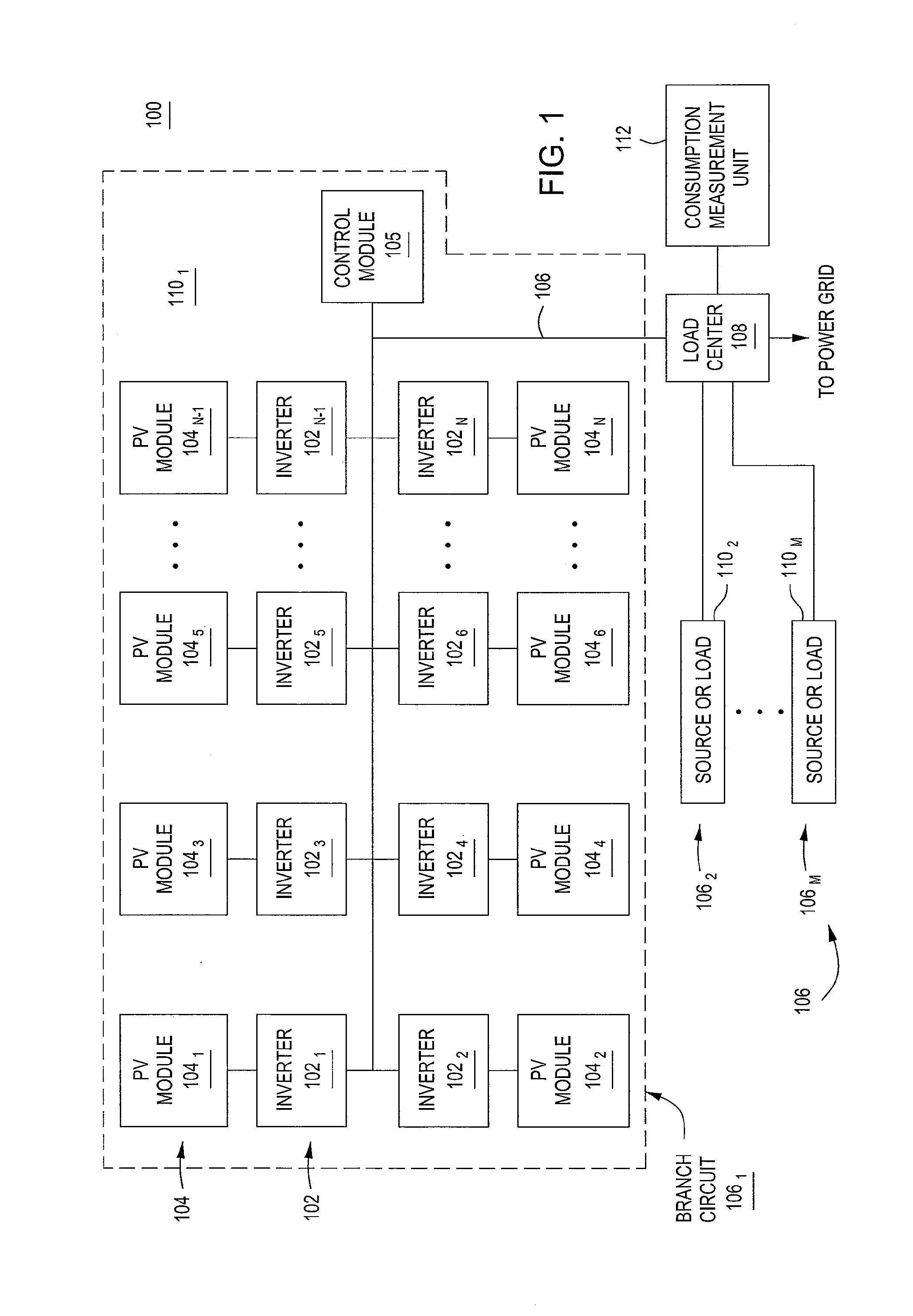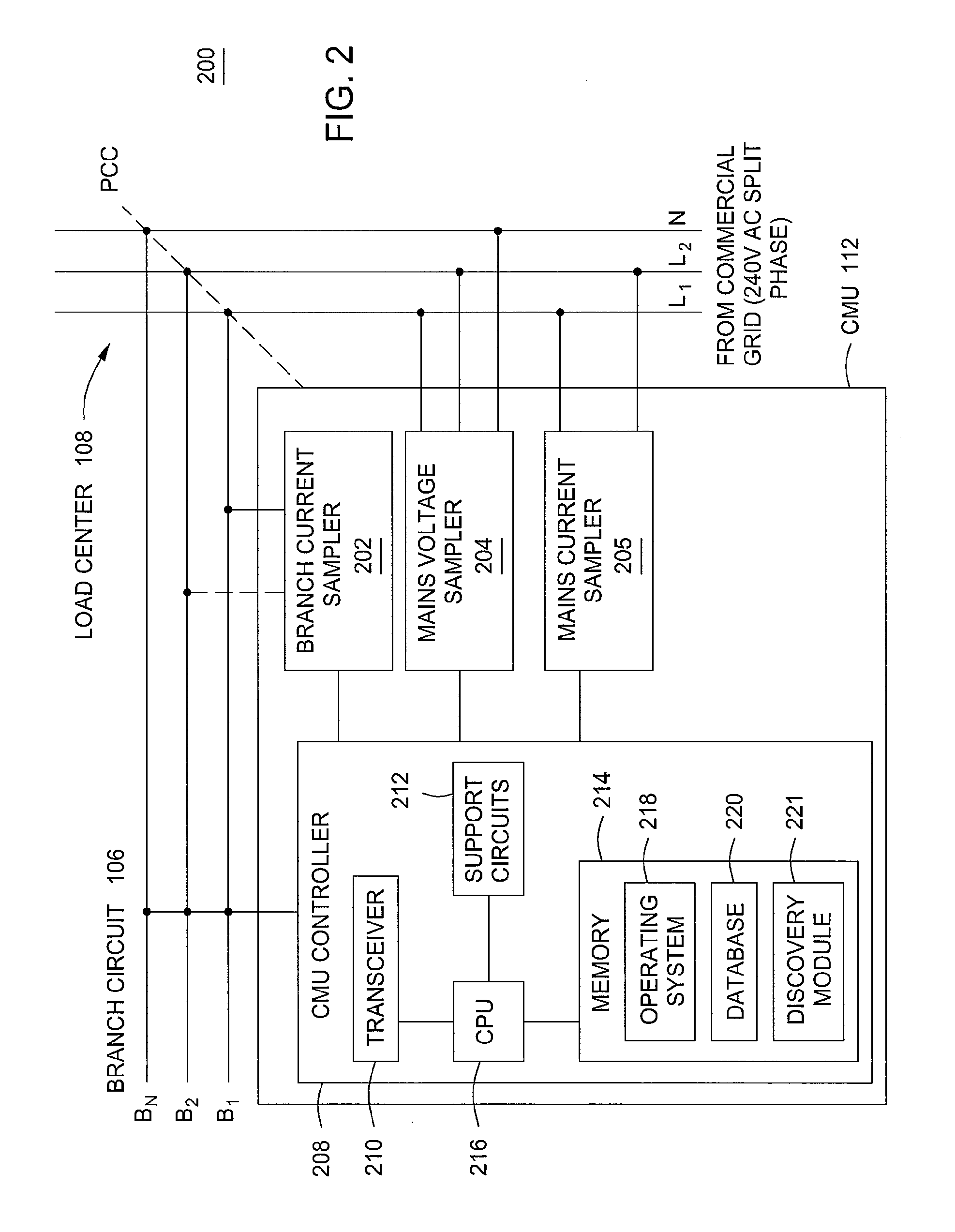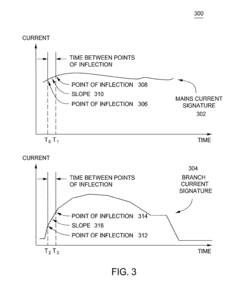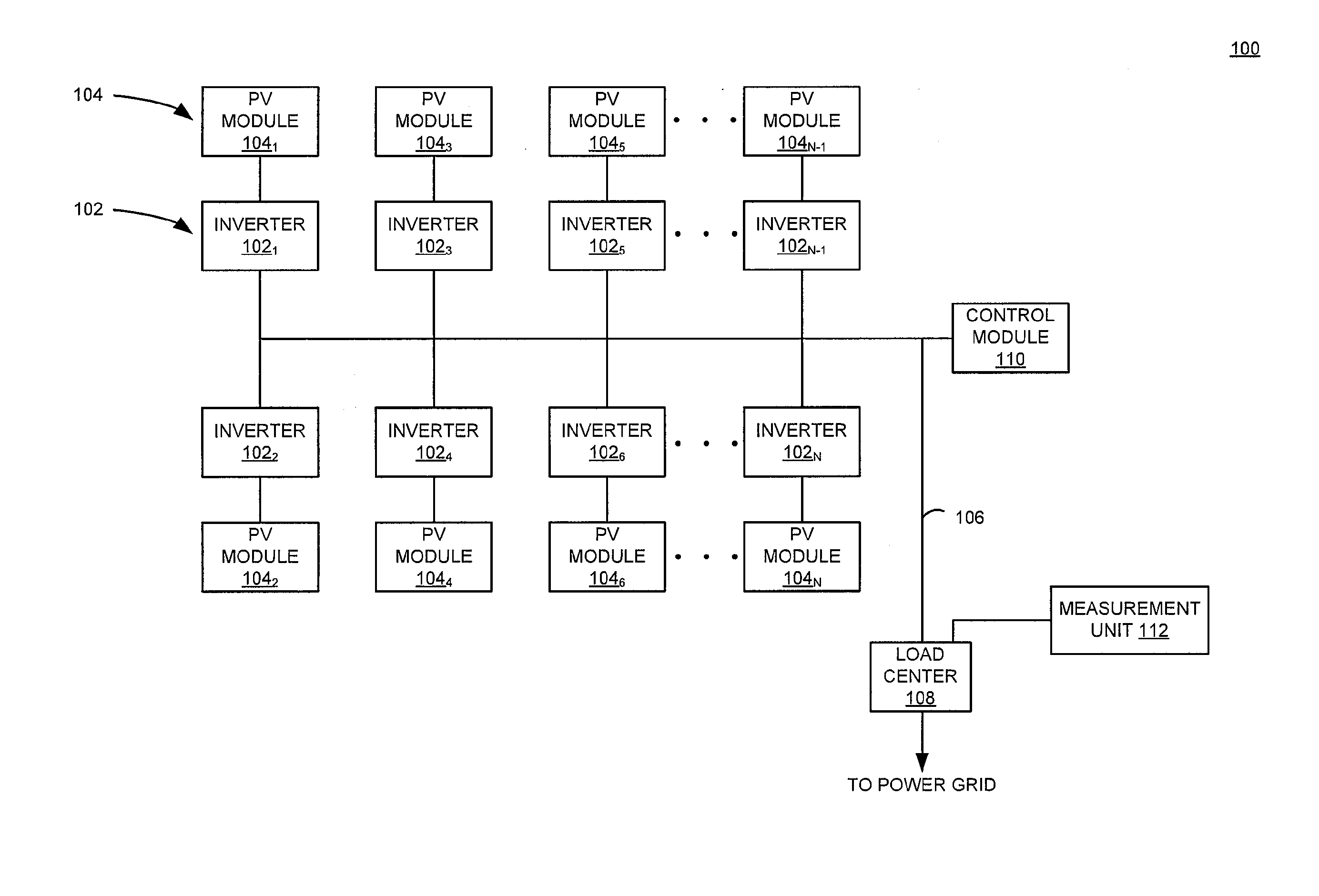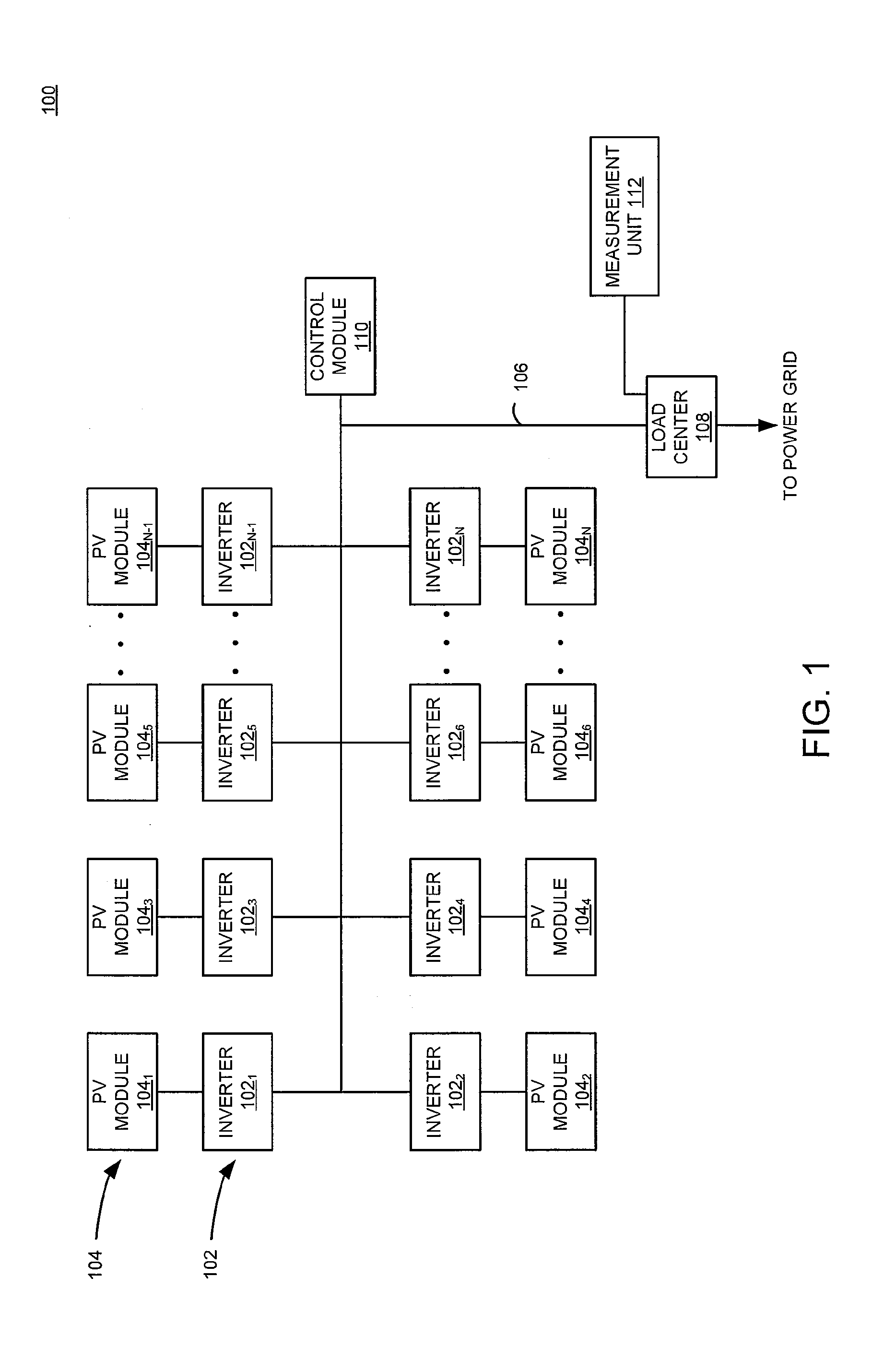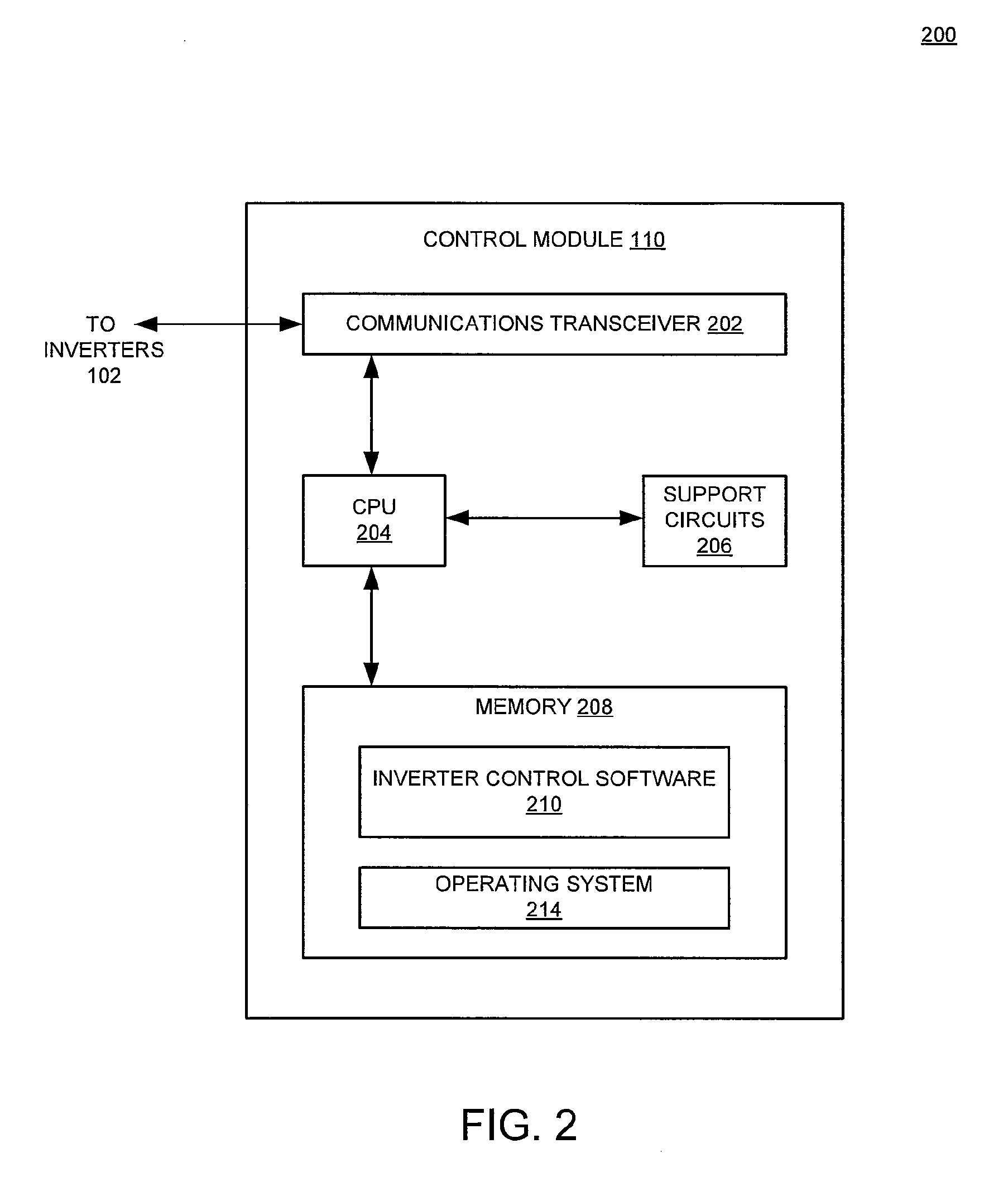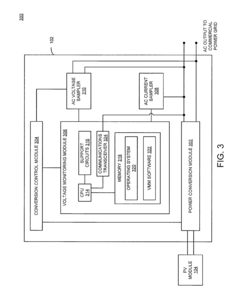Legal and Ethical Considerations in Solar Inverter Use
JUL 17, 20259 MIN READ
Generate Your Research Report Instantly with AI Agent
Patsnap Eureka helps you evaluate technical feasibility & market potential.
Solar Inverter Regulations and Ethical Framework
The legal and ethical considerations surrounding solar inverter use have become increasingly important as the adoption of solar energy systems continues to grow worldwide. Regulatory frameworks for solar inverters vary across jurisdictions, but generally focus on ensuring safety, reliability, and grid compatibility. In many countries, solar inverters must comply with specific standards and certifications, such as UL 1741 in the United States or IEC 62109 in Europe, which address electrical safety and performance requirements.
Grid interconnection regulations play a crucial role in solar inverter deployment. These regulations typically mandate features like anti-islanding protection, voltage and frequency ride-through capabilities, and power quality control. Such requirements aim to maintain grid stability and prevent potential hazards to utility workers or equipment during power outages or grid disturbances. Additionally, many jurisdictions have implemented specific interconnection procedures and agreements that solar system owners must follow to connect their inverters to the grid.
Ethical considerations in solar inverter use encompass several aspects, including environmental impact, fair access to technology, and responsible manufacturing practices. The production of solar inverters involves the use of various materials, some of which may have environmental implications. Manufacturers are increasingly expected to adopt sustainable practices, minimize waste, and ensure proper recycling or disposal of inverters at the end of their lifecycle.
Data privacy and cybersecurity have emerged as critical ethical concerns in the context of smart inverters and grid integration. As inverters become more sophisticated and connected, they collect and transmit data about energy production and consumption. Ensuring the protection of this data and preventing unauthorized access or manipulation is essential to maintain user trust and system integrity.
The ethical framework for solar inverter use also extends to issues of equity and access. As solar technology becomes more prevalent, there is a growing need to address disparities in access to these systems, particularly in underserved communities or developing regions. This includes considerations for affordable financing options, community solar projects, and policies that promote equitable distribution of solar benefits.
Intellectual property rights and fair competition practices are additional ethical considerations in the solar inverter industry. Balancing the need for innovation protection with the broader goal of accelerating clean energy adoption requires careful consideration of patent policies and licensing practices.
As the technology evolves, new ethical challenges are likely to emerge. For instance, the integration of artificial intelligence in smart inverters raises questions about decision-making algorithms and their potential impacts on energy distribution and grid management. Addressing these evolving ethical considerations will require ongoing dialogue between industry stakeholders, policymakers, and ethicists to ensure that solar inverter technology continues to develop in a responsible and beneficial manner.
Grid interconnection regulations play a crucial role in solar inverter deployment. These regulations typically mandate features like anti-islanding protection, voltage and frequency ride-through capabilities, and power quality control. Such requirements aim to maintain grid stability and prevent potential hazards to utility workers or equipment during power outages or grid disturbances. Additionally, many jurisdictions have implemented specific interconnection procedures and agreements that solar system owners must follow to connect their inverters to the grid.
Ethical considerations in solar inverter use encompass several aspects, including environmental impact, fair access to technology, and responsible manufacturing practices. The production of solar inverters involves the use of various materials, some of which may have environmental implications. Manufacturers are increasingly expected to adopt sustainable practices, minimize waste, and ensure proper recycling or disposal of inverters at the end of their lifecycle.
Data privacy and cybersecurity have emerged as critical ethical concerns in the context of smart inverters and grid integration. As inverters become more sophisticated and connected, they collect and transmit data about energy production and consumption. Ensuring the protection of this data and preventing unauthorized access or manipulation is essential to maintain user trust and system integrity.
The ethical framework for solar inverter use also extends to issues of equity and access. As solar technology becomes more prevalent, there is a growing need to address disparities in access to these systems, particularly in underserved communities or developing regions. This includes considerations for affordable financing options, community solar projects, and policies that promote equitable distribution of solar benefits.
Intellectual property rights and fair competition practices are additional ethical considerations in the solar inverter industry. Balancing the need for innovation protection with the broader goal of accelerating clean energy adoption requires careful consideration of patent policies and licensing practices.
As the technology evolves, new ethical challenges are likely to emerge. For instance, the integration of artificial intelligence in smart inverters raises questions about decision-making algorithms and their potential impacts on energy distribution and grid management. Addressing these evolving ethical considerations will require ongoing dialogue between industry stakeholders, policymakers, and ethicists to ensure that solar inverter technology continues to develop in a responsible and beneficial manner.
Market Demand for Compliant Solar Inverters
The market demand for compliant solar inverters has been steadily increasing due to growing awareness of legal and ethical considerations in solar energy systems. As governments worldwide implement stricter regulations on renewable energy technologies, solar inverter manufacturers and consumers are increasingly prioritizing compliance with legal standards and ethical practices.
The primary driver of this demand is the need for grid stability and safety. Utility companies and grid operators require solar inverters that meet specific technical standards to ensure seamless integration with the existing power infrastructure. This has led to a surge in demand for smart inverters capable of providing grid support functions, such as voltage and frequency regulation.
Environmental regulations have also played a significant role in shaping market demand. Many jurisdictions now mandate the use of inverters with high efficiency ratings to maximize energy production and minimize waste. This has resulted in a growing market for advanced inverter technologies that offer improved performance and reduced environmental impact.
Consumer awareness of ethical considerations in solar energy production has further influenced market trends. There is an increasing demand for inverters manufactured using sustainable practices and materials, as well as those designed for easy recycling at the end of their lifecycle. This shift in consumer preferences has prompted manufacturers to focus on developing more environmentally friendly and ethically produced inverters.
The market for compliant solar inverters has also been boosted by the rise of energy storage systems. As more homeowners and businesses integrate battery storage with their solar installations, there is a growing need for inverters that can seamlessly manage bidirectional power flow and comply with safety standards for energy storage systems.
In the commercial and industrial sectors, the demand for compliant solar inverters is driven by the need for advanced monitoring and control features. Businesses are seeking inverters that offer detailed performance data, remote management capabilities, and integration with building energy management systems, all while adhering to industry-specific regulations and safety standards.
The global push towards electrification and the adoption of electric vehicles has created new opportunities for compliant solar inverters. There is a growing market for inverters that can interface with EV charging systems while ensuring compliance with both solar and automotive industry standards.
As the solar industry continues to mature, the market for compliant inverters is expected to expand further. This growth will likely be fueled by ongoing technological advancements, evolving regulatory landscapes, and increasing consumer awareness of the legal and ethical aspects of solar energy production.
The primary driver of this demand is the need for grid stability and safety. Utility companies and grid operators require solar inverters that meet specific technical standards to ensure seamless integration with the existing power infrastructure. This has led to a surge in demand for smart inverters capable of providing grid support functions, such as voltage and frequency regulation.
Environmental regulations have also played a significant role in shaping market demand. Many jurisdictions now mandate the use of inverters with high efficiency ratings to maximize energy production and minimize waste. This has resulted in a growing market for advanced inverter technologies that offer improved performance and reduced environmental impact.
Consumer awareness of ethical considerations in solar energy production has further influenced market trends. There is an increasing demand for inverters manufactured using sustainable practices and materials, as well as those designed for easy recycling at the end of their lifecycle. This shift in consumer preferences has prompted manufacturers to focus on developing more environmentally friendly and ethically produced inverters.
The market for compliant solar inverters has also been boosted by the rise of energy storage systems. As more homeowners and businesses integrate battery storage with their solar installations, there is a growing need for inverters that can seamlessly manage bidirectional power flow and comply with safety standards for energy storage systems.
In the commercial and industrial sectors, the demand for compliant solar inverters is driven by the need for advanced monitoring and control features. Businesses are seeking inverters that offer detailed performance data, remote management capabilities, and integration with building energy management systems, all while adhering to industry-specific regulations and safety standards.
The global push towards electrification and the adoption of electric vehicles has created new opportunities for compliant solar inverters. There is a growing market for inverters that can interface with EV charging systems while ensuring compliance with both solar and automotive industry standards.
As the solar industry continues to mature, the market for compliant inverters is expected to expand further. This growth will likely be fueled by ongoing technological advancements, evolving regulatory landscapes, and increasing consumer awareness of the legal and ethical aspects of solar energy production.
Current Legal Challenges in Solar Inverter Technology
The legal landscape surrounding solar inverter technology is rapidly evolving, presenting a complex array of challenges for manufacturers, installers, and users. One of the primary legal issues revolves around compliance with grid interconnection standards. As solar inverters play a crucial role in connecting photovoltaic systems to the electrical grid, they must adhere to strict regulations to ensure grid stability and safety. These standards vary by region and are continually updated, requiring manufacturers to adapt their products to meet diverse and changing requirements.
Intellectual property rights pose another significant legal challenge in the solar inverter industry. With the increasing demand for more efficient and advanced inverter technologies, patent disputes have become more frequent. Companies are aggressively protecting their innovations, leading to legal battles over proprietary designs, control algorithms, and communication protocols. This competitive landscape can potentially stifle innovation and increase costs for end-users.
Product liability is an emerging concern for solar inverter manufacturers. As these devices become more sophisticated and integral to solar energy systems, any malfunction or failure can result in significant financial losses or safety hazards. Determining liability in cases of system underperformance or electrical incidents can be legally complex, especially when multiple components and parties are involved in a solar installation.
Data privacy and cybersecurity regulations present additional legal challenges. Modern solar inverters often incorporate smart features and connectivity options, collecting and transmitting data about energy production and consumption. Manufacturers must navigate a patchwork of data protection laws, ensuring compliance with regulations such as GDPR in Europe or CCPA in California, while also implementing robust security measures to protect against cyber threats.
Environmental regulations also impact the solar inverter industry. While solar energy is generally considered environmentally friendly, the production and disposal of inverters involve materials and processes that may be subject to environmental laws. Manufacturers must comply with regulations governing electronic waste, hazardous materials, and product lifecycle management, which can vary significantly across different markets.
Lastly, the rapid pace of technological advancement in solar inverters often outpaces regulatory frameworks. This creates legal uncertainties, particularly in areas such as energy storage integration, grid services provision, and advanced power quality management. Regulators and lawmakers are challenged to keep up with these innovations, sometimes resulting in outdated or ambiguous legal frameworks that can hinder the adoption of cutting-edge solar inverter technologies.
Intellectual property rights pose another significant legal challenge in the solar inverter industry. With the increasing demand for more efficient and advanced inverter technologies, patent disputes have become more frequent. Companies are aggressively protecting their innovations, leading to legal battles over proprietary designs, control algorithms, and communication protocols. This competitive landscape can potentially stifle innovation and increase costs for end-users.
Product liability is an emerging concern for solar inverter manufacturers. As these devices become more sophisticated and integral to solar energy systems, any malfunction or failure can result in significant financial losses or safety hazards. Determining liability in cases of system underperformance or electrical incidents can be legally complex, especially when multiple components and parties are involved in a solar installation.
Data privacy and cybersecurity regulations present additional legal challenges. Modern solar inverters often incorporate smart features and connectivity options, collecting and transmitting data about energy production and consumption. Manufacturers must navigate a patchwork of data protection laws, ensuring compliance with regulations such as GDPR in Europe or CCPA in California, while also implementing robust security measures to protect against cyber threats.
Environmental regulations also impact the solar inverter industry. While solar energy is generally considered environmentally friendly, the production and disposal of inverters involve materials and processes that may be subject to environmental laws. Manufacturers must comply with regulations governing electronic waste, hazardous materials, and product lifecycle management, which can vary significantly across different markets.
Lastly, the rapid pace of technological advancement in solar inverters often outpaces regulatory frameworks. This creates legal uncertainties, particularly in areas such as energy storage integration, grid services provision, and advanced power quality management. Regulators and lawmakers are challenged to keep up with these innovations, sometimes resulting in outdated or ambiguous legal frameworks that can hinder the adoption of cutting-edge solar inverter technologies.
Existing Compliance Solutions for Solar Inverters
01 Grid-tied solar inverter systems
Grid-tied solar inverter systems are designed to connect photovoltaic arrays to the utility grid. These systems typically include features for maximum power point tracking, DC-to-AC conversion, and grid synchronization. They often incorporate safety mechanisms such as anti-islanding protection and may support bidirectional power flow for energy storage integration.- Grid-tied solar inverter systems: Grid-tied solar inverter systems are designed to connect solar panels to the utility grid. These systems convert DC power from solar panels into AC power compatible with the grid, allowing for bidirectional power flow. They often include features like maximum power point tracking (MPPT) and anti-islanding protection for safety and efficiency.
- Microinverter technology: Microinverters are small inverters attached to individual solar panels or small groups of panels. They convert DC to AC at the panel level, offering advantages such as improved efficiency, easier system scalability, and enhanced monitoring capabilities. Microinverters can also mitigate the effects of partial shading on overall system performance.
- Energy storage integration: Solar inverters with integrated energy storage capabilities allow for the storage of excess solar energy in batteries for later use. These systems can provide backup power during grid outages, optimize self-consumption of solar energy, and participate in grid services. Advanced control algorithms manage the flow of energy between solar panels, batteries, and the grid.
- Smart grid functionality: Modern solar inverters incorporate smart grid features to enhance grid stability and support grid management. These features include reactive power control, voltage regulation, frequency response, and communication interfaces for remote monitoring and control. Smart inverters can adapt their operation based on grid conditions and utility requirements.
- Efficiency and reliability improvements: Ongoing advancements in solar inverter technology focus on improving efficiency and reliability. This includes the development of wide-bandgap semiconductor devices, advanced thermal management techniques, and innovative circuit topologies. These improvements aim to increase power conversion efficiency, reduce losses, and extend the lifespan of solar inverter systems.
02 Microinverter technology
Microinverters are small inverters attached to individual solar panels or small groups of panels. They convert DC to AC at the panel level, offering advantages such as improved system efficiency, easier installation, and enhanced monitoring capabilities. Microinverters can also mitigate the effects of partial shading and panel mismatch.Expand Specific Solutions03 Power optimization and management
Solar inverters incorporate various power optimization and management techniques to enhance overall system performance. These may include advanced maximum power point tracking algorithms, reactive power control, and intelligent power management strategies. Such features aim to maximize energy yield, improve grid stability, and optimize system efficiency under varying environmental conditions.Expand Specific Solutions04 Thermal management and reliability
Effective thermal management is crucial for solar inverter reliability and longevity. Inverter designs may incorporate advanced cooling systems, temperature monitoring, and thermal protection mechanisms. Additionally, inverters may feature modular designs, redundant components, or self-diagnostic capabilities to enhance overall system reliability and ease of maintenance.Expand Specific Solutions05 Smart grid integration and communication
Modern solar inverters are designed with smart grid integration capabilities, including advanced communication protocols and interfaces. These features enable remote monitoring, control, and data analysis, as well as grid support functions such as voltage regulation and frequency response. Smart inverters can also facilitate demand response and energy management in conjunction with other distributed energy resources.Expand Specific Solutions
Key Players in Solar Inverter Compliance
The legal and ethical considerations in solar inverter use are becoming increasingly important as the solar energy market matures. The industry is experiencing rapid growth, with a global market size expected to reach $27.2 billion by 2026. Technologically, solar inverters are advancing quickly, with companies like Enphase Energy, SMA Solar Technology, and Advanced Energy Industries leading innovation. These firms are focusing on improving efficiency, reliability, and grid integration capabilities. As the technology matures, regulatory frameworks are evolving to address issues such as safety standards, grid stability, and data privacy. Companies are also investing in smart inverter technologies to enhance grid support functions and enable better energy management, reflecting the industry's shift towards more sophisticated and interconnected solar power systems.
Enphase Energy, Inc.
Technical Solution: Enphase Energy has developed a comprehensive approach to legal and ethical considerations in solar inverter use. Their microinverter technology incorporates advanced safety features such as rapid shutdown capabilities, which comply with NEC 2017 and 2020 regulations[1]. The company has also implemented a robust data privacy framework to protect user information collected through their monitoring systems. Enphase's Envoy communication gateway ensures secure, encrypted data transmission between the inverters and the cloud[2]. Additionally, they have established a rigorous supply chain management process to ensure ethical sourcing of materials and components, addressing concerns about forced labor and environmental impact[3].
Strengths: Advanced safety features, strong data privacy measures, and ethical supply chain management. Weaknesses: Potential higher costs due to individual microinverters for each panel.
SMA Solar Technology AG
Technical Solution: SMA Solar Technology has implemented a comprehensive approach to legal and ethical considerations in solar inverter use. Their inverters are designed to comply with international safety standards and grid codes, including UL 1741 and IEEE 1547[4]. SMA has developed a "Smart Connected" service that proactively monitors inverter performance and identifies potential issues, ensuring optimal system operation and reducing downtime[5]. The company has also implemented a strict code of conduct for suppliers, addressing ethical concerns in the supply chain. SMA's inverters incorporate advanced cybersecurity features, including encrypted communication and regular firmware updates, to protect against potential cyber threats[6].
Strengths: Proactive monitoring system, strong cybersecurity measures, and adherence to international standards. Weaknesses: May have higher initial costs compared to some competitors.
Core Legal Innovations in Solar Inverter Design
Method and apparatus for characterizing a circuit coupled to an AC line
PatentActiveUS20100181830A1
Innovation
- A consumption measurement unit (CMU) automatically characterizes circuits by generating current signatures from AC line samples, distinguishing between source and load profiles, and determining voltage characteristics, independent of voltage and current polarity, facilitating accurate monitoring and safety compliance.
Method and apparatus for determining a corrected monitoring voltage
PatentActiveUS20100195357A1
Innovation
- A method and apparatus using a computing system with a control module and measurement unit to determine a corrected monitoring voltage by measuring voltages at both the inverter and the Point of Common Coupling, applying a correction coefficient to compensate for voltage drops, ensuring compliance with regulatory requirements and preventing unnecessary shutdowns.
Environmental Impact Assessment of Solar Inverters
The environmental impact assessment of solar inverters is a critical aspect of evaluating the overall sustainability of solar energy systems. While solar power is generally considered a clean energy source, the production, use, and disposal of solar inverters can have significant environmental implications.
Manufacturing solar inverters involves the extraction and processing of raw materials, including metals and semiconductors. This process can lead to habitat disruption, energy consumption, and greenhouse gas emissions. The production of electronic components often requires the use of hazardous chemicals and rare earth elements, which can have adverse effects on local ecosystems if not properly managed.
During their operational lifetime, solar inverters contribute to the reduction of carbon emissions by enabling the use of solar energy. However, they also consume energy and generate heat, which can have localized environmental impacts. The efficiency of inverters plays a crucial role in maximizing the environmental benefits of solar power systems. More efficient inverters reduce energy losses and improve the overall performance of solar installations.
Electromagnetic interference (EMI) from solar inverters is another environmental concern. EMI can affect wildlife, particularly birds and insects, by disrupting their navigation and communication systems. Proper shielding and design considerations are necessary to minimize these effects.
The end-of-life management of solar inverters presents significant environmental challenges. As electronic devices, they contain potentially hazardous materials that require careful handling and disposal. Improper disposal can lead to soil and water contamination. Recycling programs for solar inverters are essential to recover valuable materials and prevent environmental pollution.
The lifespan of solar inverters, typically 10-15 years, is shorter than that of solar panels. This necessitates more frequent replacement, increasing the environmental impact associated with manufacturing and disposal. Developing inverters with longer lifespans and improved durability is crucial for reducing this impact.
Water usage in the manufacturing process and for cleaning during maintenance is another environmental factor to consider. In water-scarce regions, this can put additional pressure on local water resources.
Overall, while solar inverters play a vital role in harnessing clean energy, their environmental impact throughout their lifecycle must be carefully managed to ensure the true sustainability of solar power systems.
Manufacturing solar inverters involves the extraction and processing of raw materials, including metals and semiconductors. This process can lead to habitat disruption, energy consumption, and greenhouse gas emissions. The production of electronic components often requires the use of hazardous chemicals and rare earth elements, which can have adverse effects on local ecosystems if not properly managed.
During their operational lifetime, solar inverters contribute to the reduction of carbon emissions by enabling the use of solar energy. However, they also consume energy and generate heat, which can have localized environmental impacts. The efficiency of inverters plays a crucial role in maximizing the environmental benefits of solar power systems. More efficient inverters reduce energy losses and improve the overall performance of solar installations.
Electromagnetic interference (EMI) from solar inverters is another environmental concern. EMI can affect wildlife, particularly birds and insects, by disrupting their navigation and communication systems. Proper shielding and design considerations are necessary to minimize these effects.
The end-of-life management of solar inverters presents significant environmental challenges. As electronic devices, they contain potentially hazardous materials that require careful handling and disposal. Improper disposal can lead to soil and water contamination. Recycling programs for solar inverters are essential to recover valuable materials and prevent environmental pollution.
The lifespan of solar inverters, typically 10-15 years, is shorter than that of solar panels. This necessitates more frequent replacement, increasing the environmental impact associated with manufacturing and disposal. Developing inverters with longer lifespans and improved durability is crucial for reducing this impact.
Water usage in the manufacturing process and for cleaning during maintenance is another environmental factor to consider. In water-scarce regions, this can put additional pressure on local water resources.
Overall, while solar inverters play a vital role in harnessing clean energy, their environmental impact throughout their lifecycle must be carefully managed to ensure the true sustainability of solar power systems.
Consumer Protection in Solar Inverter Market
Consumer protection in the solar inverter market has become increasingly important as the adoption of solar energy systems continues to grow. The legal and ethical considerations surrounding solar inverter use necessitate robust measures to safeguard consumer interests. One of the primary concerns is ensuring product quality and safety standards. Regulatory bodies have implemented stringent certification processes to verify that solar inverters meet specific performance and safety criteria before entering the market.
Transparency in product information and marketing practices is another crucial aspect of consumer protection. Manufacturers and retailers are required to provide accurate and comprehensive details about their solar inverters, including efficiency ratings, warranty terms, and potential limitations. This information empowers consumers to make informed decisions and compare different products effectively.
Warranty and after-sales support play a significant role in protecting consumers' long-term interests. Many jurisdictions have mandated minimum warranty periods for solar inverters, typically ranging from 5 to 10 years. Some manufacturers offer extended warranties as a competitive advantage. Ensuring that consumers have access to reliable repair and replacement services is essential for maintaining the longevity and performance of their solar energy systems.
Data privacy and security have emerged as critical concerns in the era of smart solar inverters. These devices often collect and transmit data about energy production and consumption patterns. Regulations are being developed to protect consumers' personal information and prevent unauthorized access to their energy data. Manufacturers are required to implement robust cybersecurity measures and provide clear privacy policies to users.
Consumer education initiatives have been launched to help buyers understand the complexities of solar inverter technology and make informed choices. These programs cover topics such as system sizing, inverter types, and performance expectations. Additionally, they aim to raise awareness about potential scams and fraudulent practices in the solar energy market.
Financial protection mechanisms have been established to safeguard consumers' investments in solar energy systems. Some regions have implemented performance-based incentive programs that tie financial benefits to the actual output of solar installations, encouraging the use of high-quality inverters. Insurance products specifically designed for solar energy systems, including inverters, are also becoming more prevalent.
Dispute resolution mechanisms have been put in place to address conflicts between consumers and solar inverter manufacturers or installers. Many jurisdictions now offer specialized mediation services or arbitration processes to handle solar energy-related disputes efficiently and fairly.
Transparency in product information and marketing practices is another crucial aspect of consumer protection. Manufacturers and retailers are required to provide accurate and comprehensive details about their solar inverters, including efficiency ratings, warranty terms, and potential limitations. This information empowers consumers to make informed decisions and compare different products effectively.
Warranty and after-sales support play a significant role in protecting consumers' long-term interests. Many jurisdictions have mandated minimum warranty periods for solar inverters, typically ranging from 5 to 10 years. Some manufacturers offer extended warranties as a competitive advantage. Ensuring that consumers have access to reliable repair and replacement services is essential for maintaining the longevity and performance of their solar energy systems.
Data privacy and security have emerged as critical concerns in the era of smart solar inverters. These devices often collect and transmit data about energy production and consumption patterns. Regulations are being developed to protect consumers' personal information and prevent unauthorized access to their energy data. Manufacturers are required to implement robust cybersecurity measures and provide clear privacy policies to users.
Consumer education initiatives have been launched to help buyers understand the complexities of solar inverter technology and make informed choices. These programs cover topics such as system sizing, inverter types, and performance expectations. Additionally, they aim to raise awareness about potential scams and fraudulent practices in the solar energy market.
Financial protection mechanisms have been established to safeguard consumers' investments in solar energy systems. Some regions have implemented performance-based incentive programs that tie financial benefits to the actual output of solar installations, encouraging the use of high-quality inverters. Insurance products specifically designed for solar energy systems, including inverters, are also becoming more prevalent.
Dispute resolution mechanisms have been put in place to address conflicts between consumers and solar inverter manufacturers or installers. Many jurisdictions now offer specialized mediation services or arbitration processes to handle solar energy-related disputes efficiently and fairly.
Unlock deeper insights with Patsnap Eureka Quick Research — get a full tech report to explore trends and direct your research. Try now!
Generate Your Research Report Instantly with AI Agent
Supercharge your innovation with Patsnap Eureka AI Agent Platform!
